Typewriters and tobacco: Inside 1950s Glasgow factories
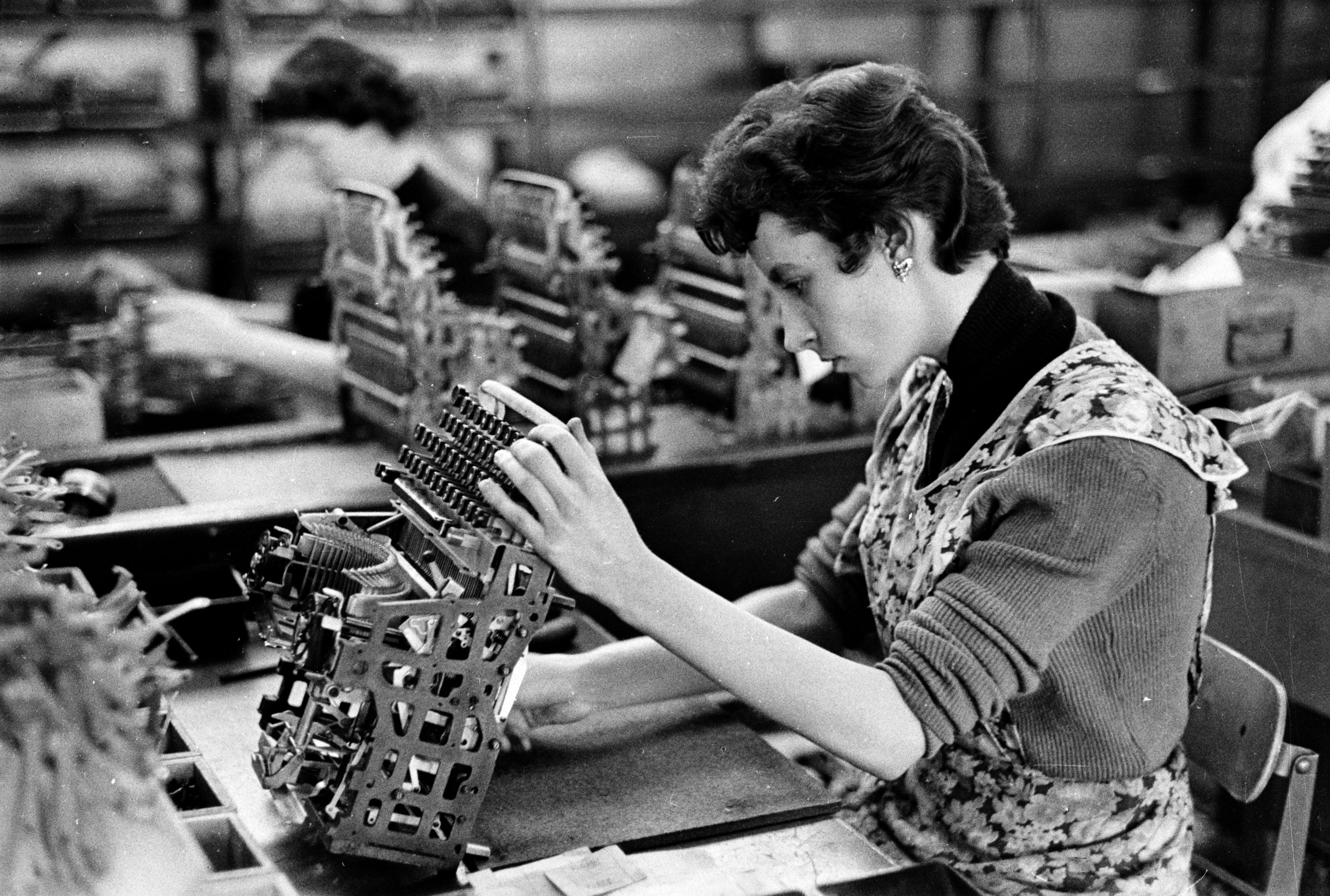
More than 900 people were employed at the British Olivetti plant, where they produced typewriters
- Published
In the early 1950s, Joseph Haywood Magee - a renowned war correspondent - visited Glasgow.
He documented the working lives of people living in the city for a 1955 edition of Picture Post, a photojournalism magazine.
Under the headline "Let Glasgow Flourish!" his photographs show men and woman at work in a diverse range of factories.
Among them is the Olivetti typewriter factory at Queenslie industrial estate in the east of the city.
At its height, it employed more than 900 people in the design and manufacture of typewriters, many for export. It closed in the 1980s.
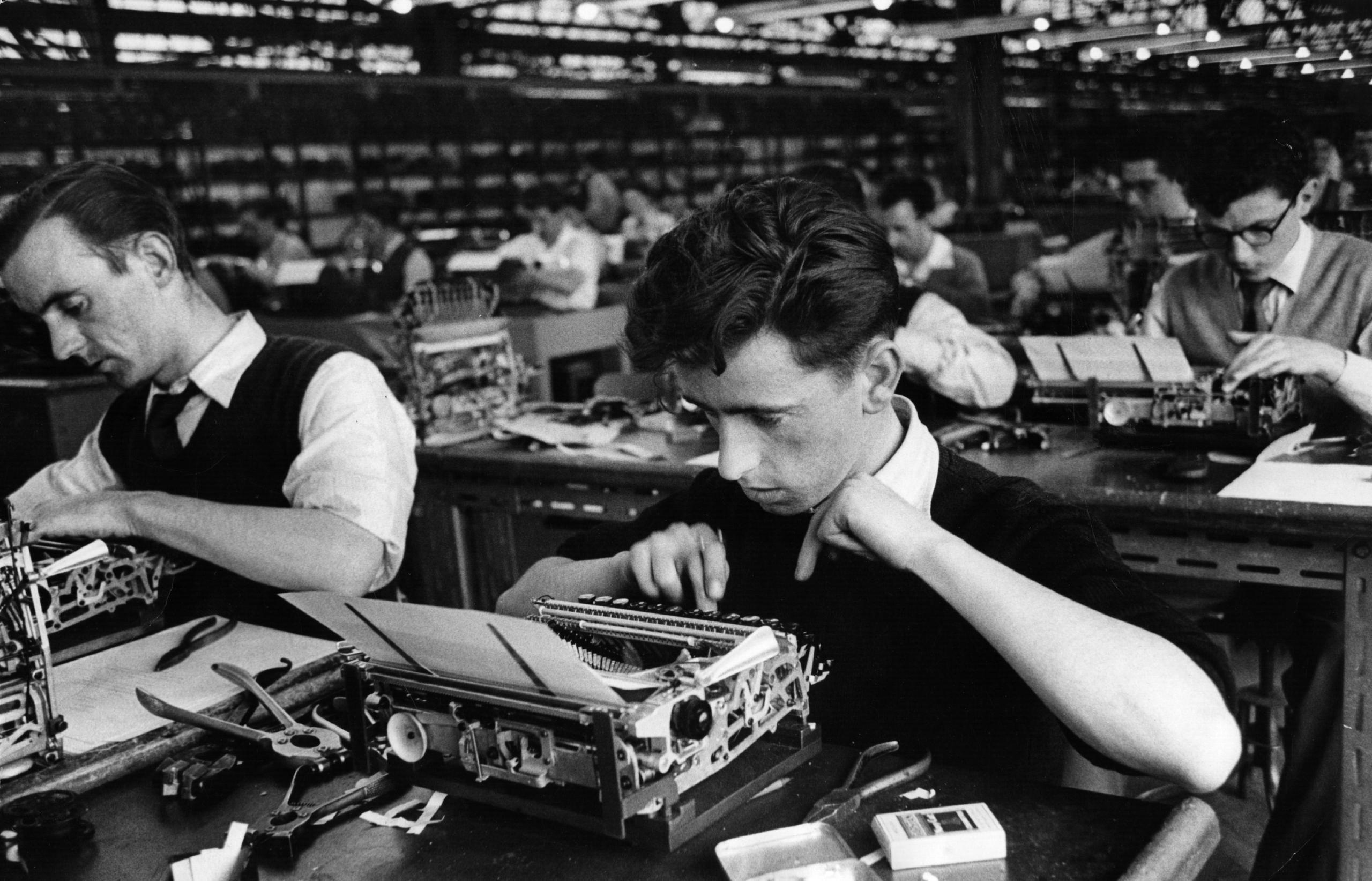
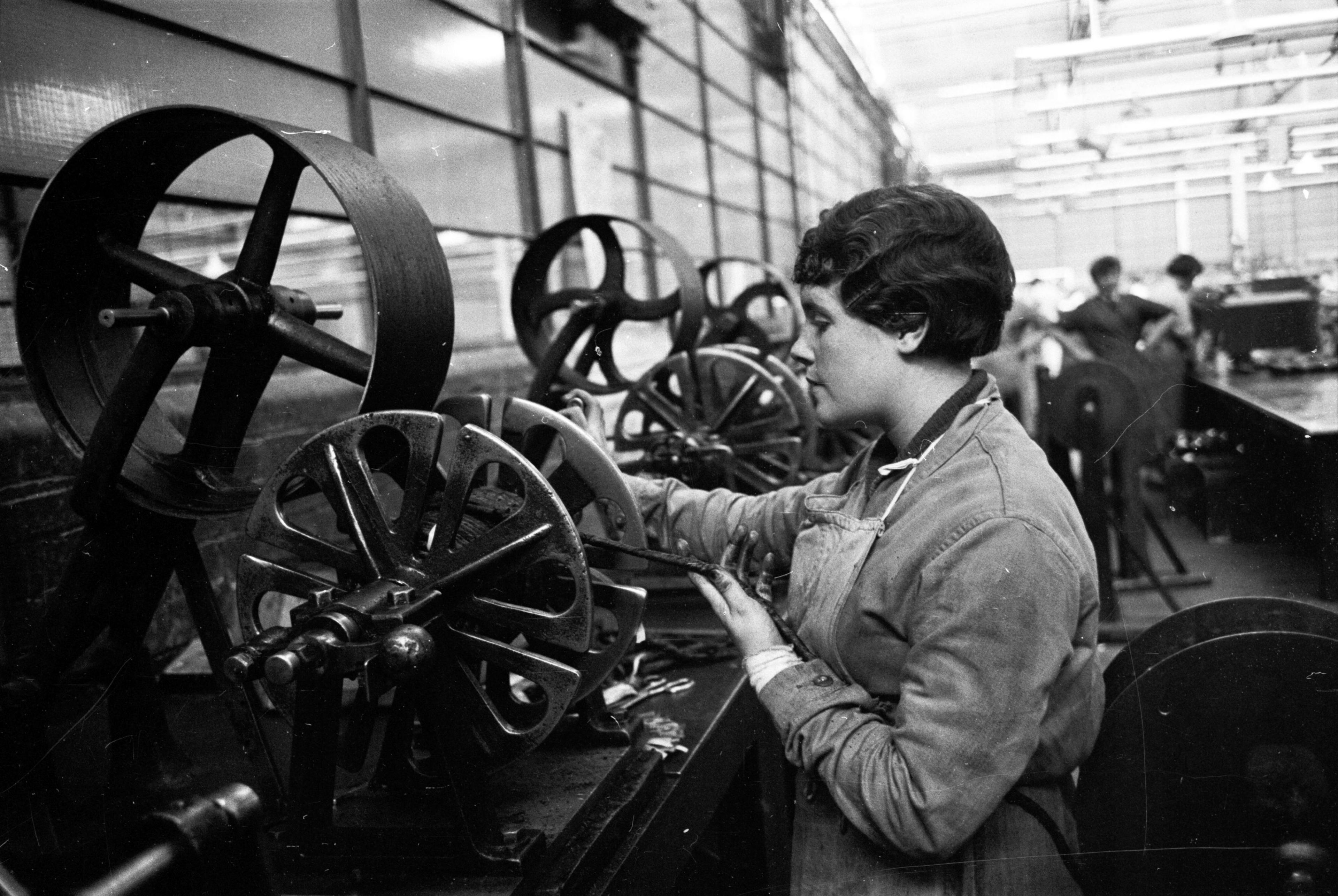
Tobacco was also big business in Glasgow in the 1950s.
Stephen Mitchell & Son - a tobacco firm which dated back to the 1700s - operated in Alexandra Parade.
When the son of its founder died in the 1800s, he bequeathed £67,000 to establish a large public library.
The Mitchell Library at Charing Cross still carries its benefactor's name.
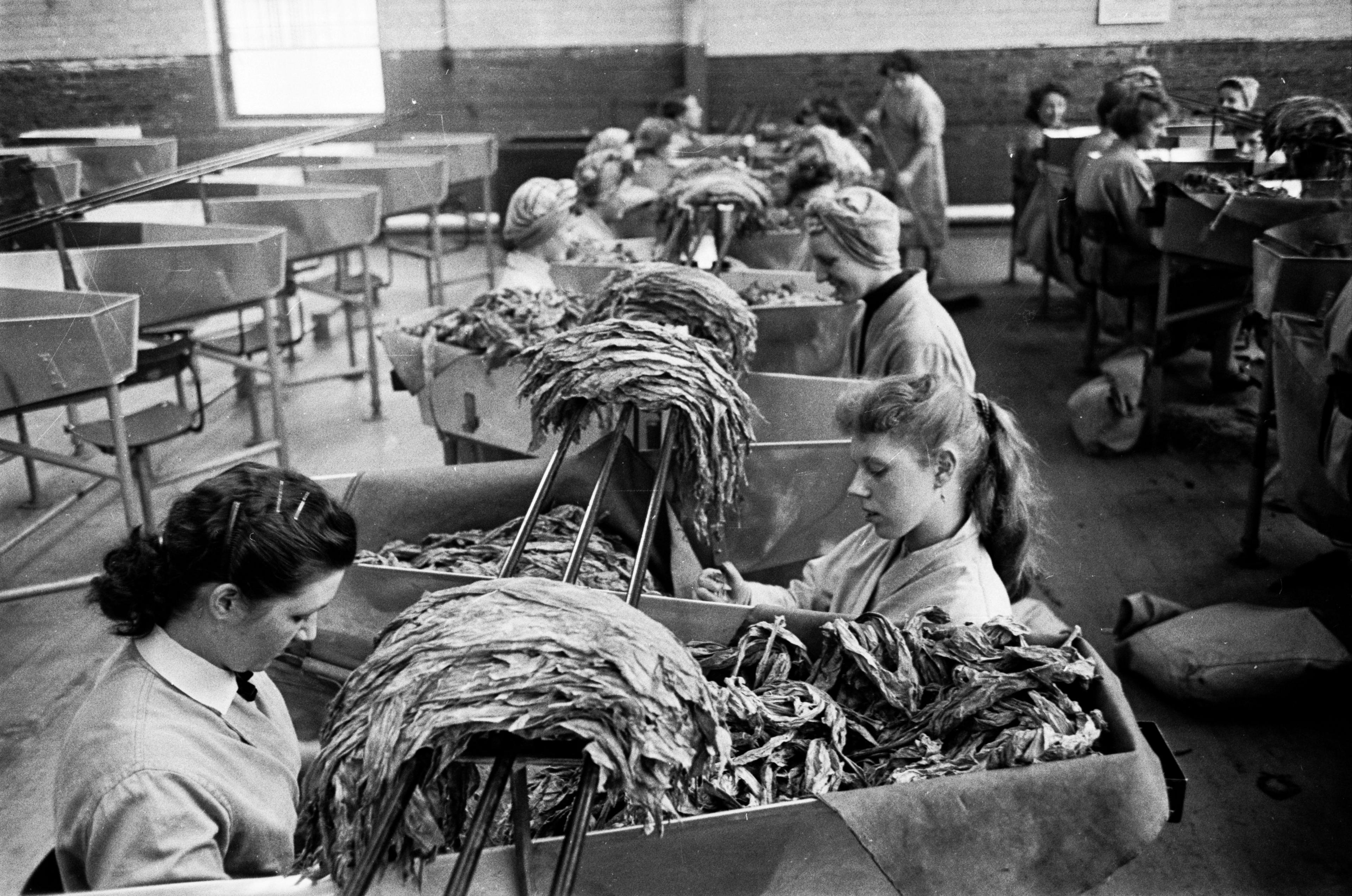
Workers sort out piles of golden leaf tobacco
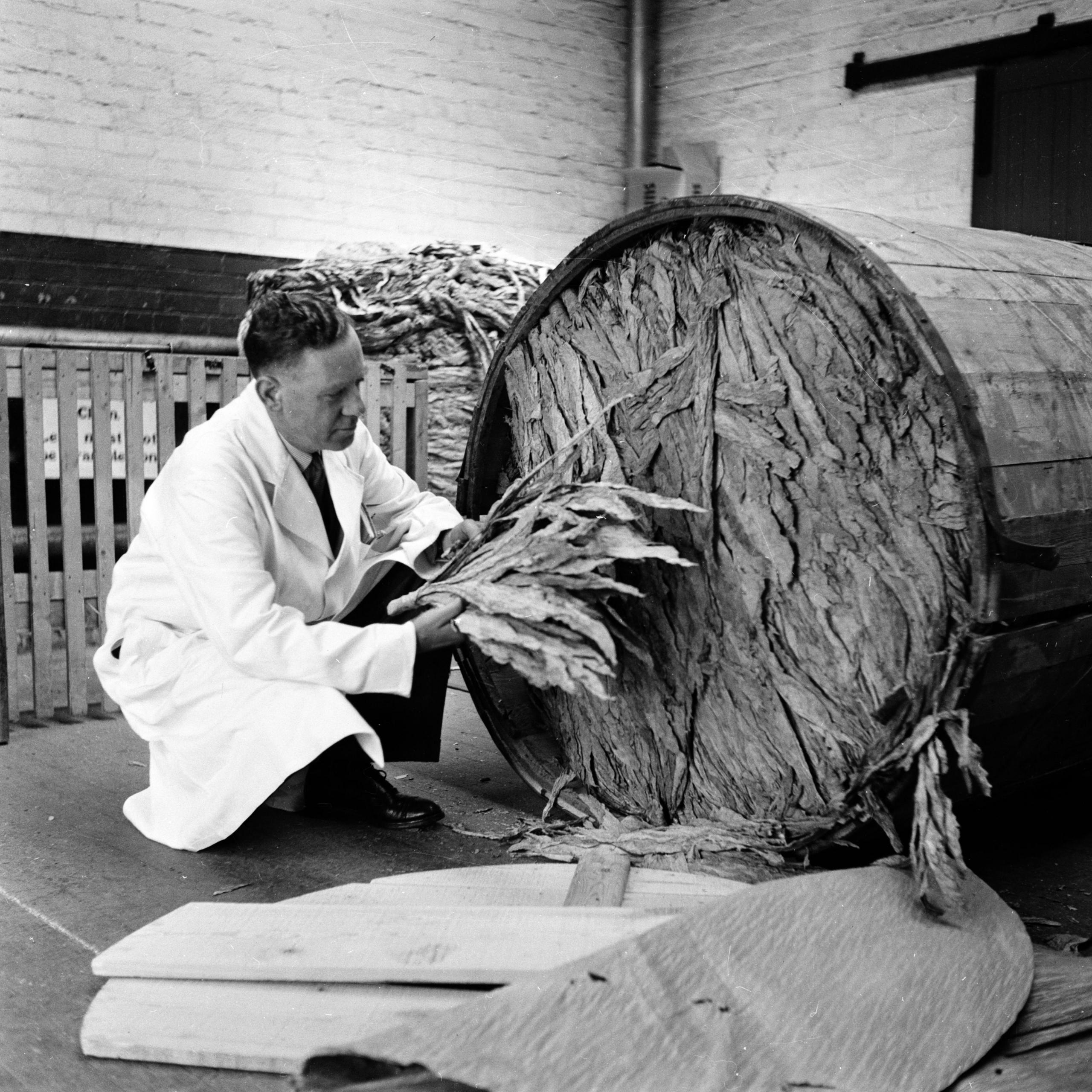
A barrel of golden leaf tobacco arrives at the factory
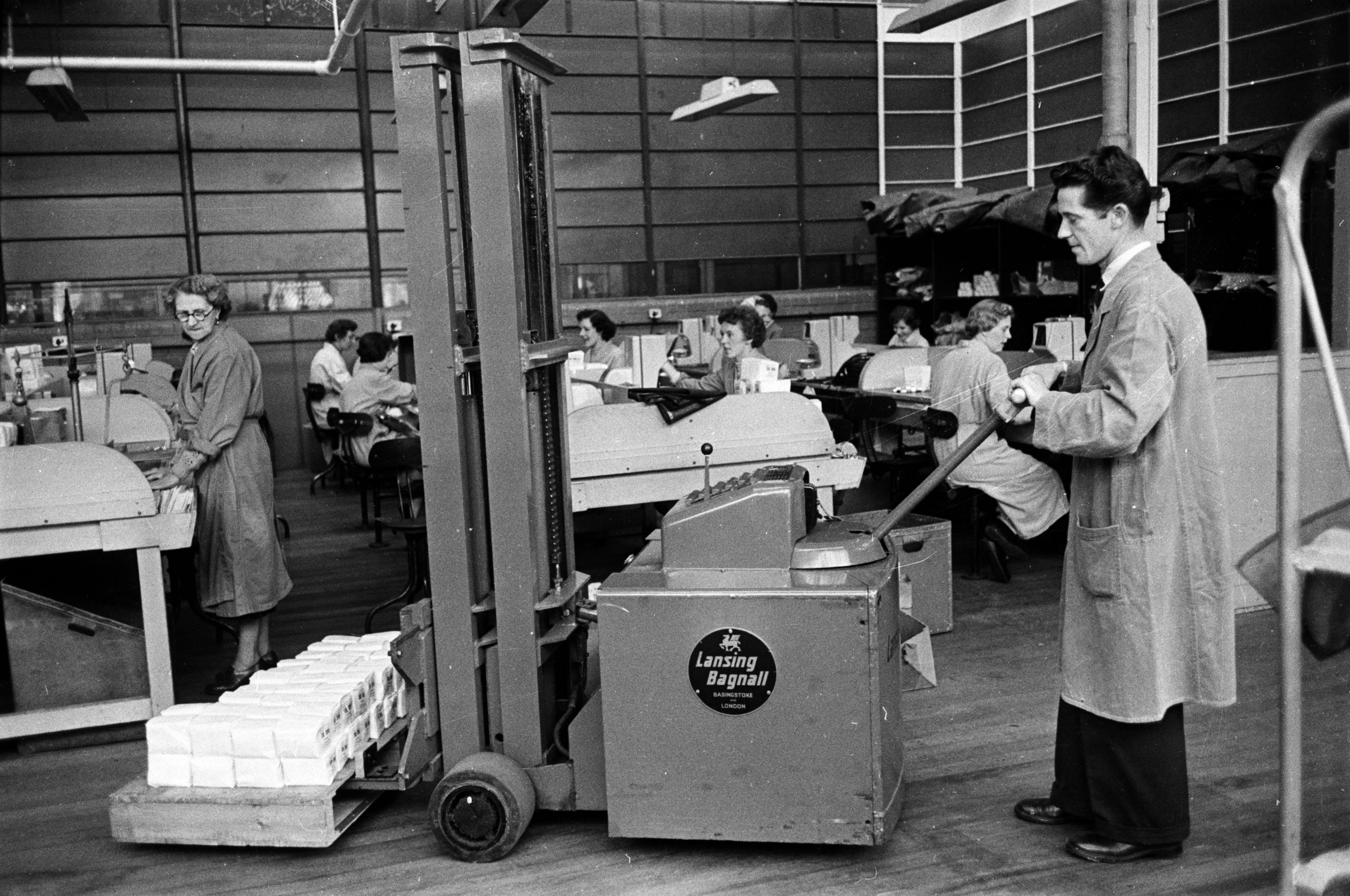
A worker transports cartons of Three Nuns tobacco
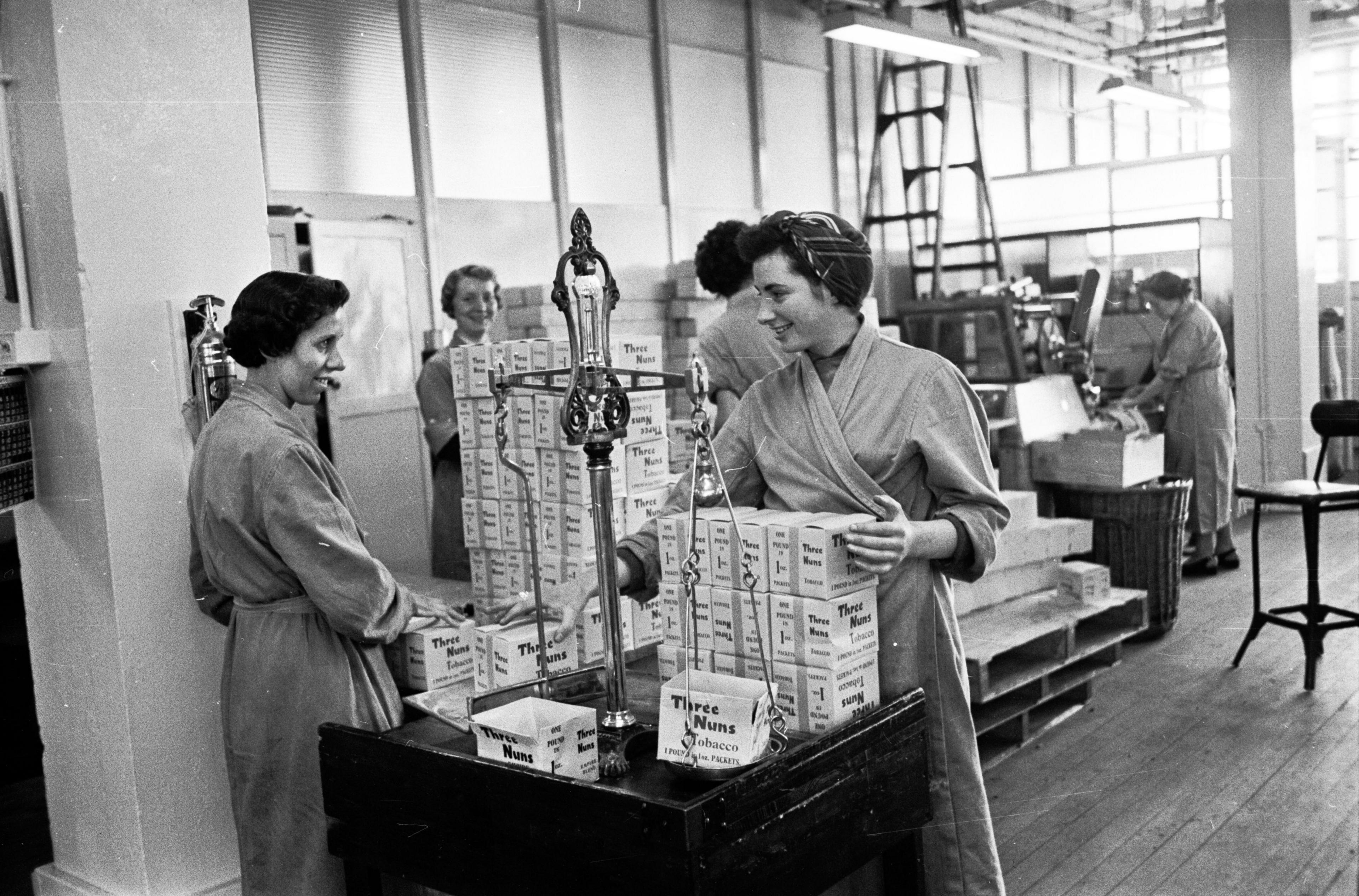
At the Glengarry bakery of William Macdonald and Sons, there was a 24-hour production line.
It meant the factory generated a constant supply of biscuits, with the firm claiming to be responsible for a quarter of the UK's total chocolate biscuit output.
William Macdonald was credited with inventing the Penguin chocolate biscuit before his company merged into the United Biscuits Group in 1965.
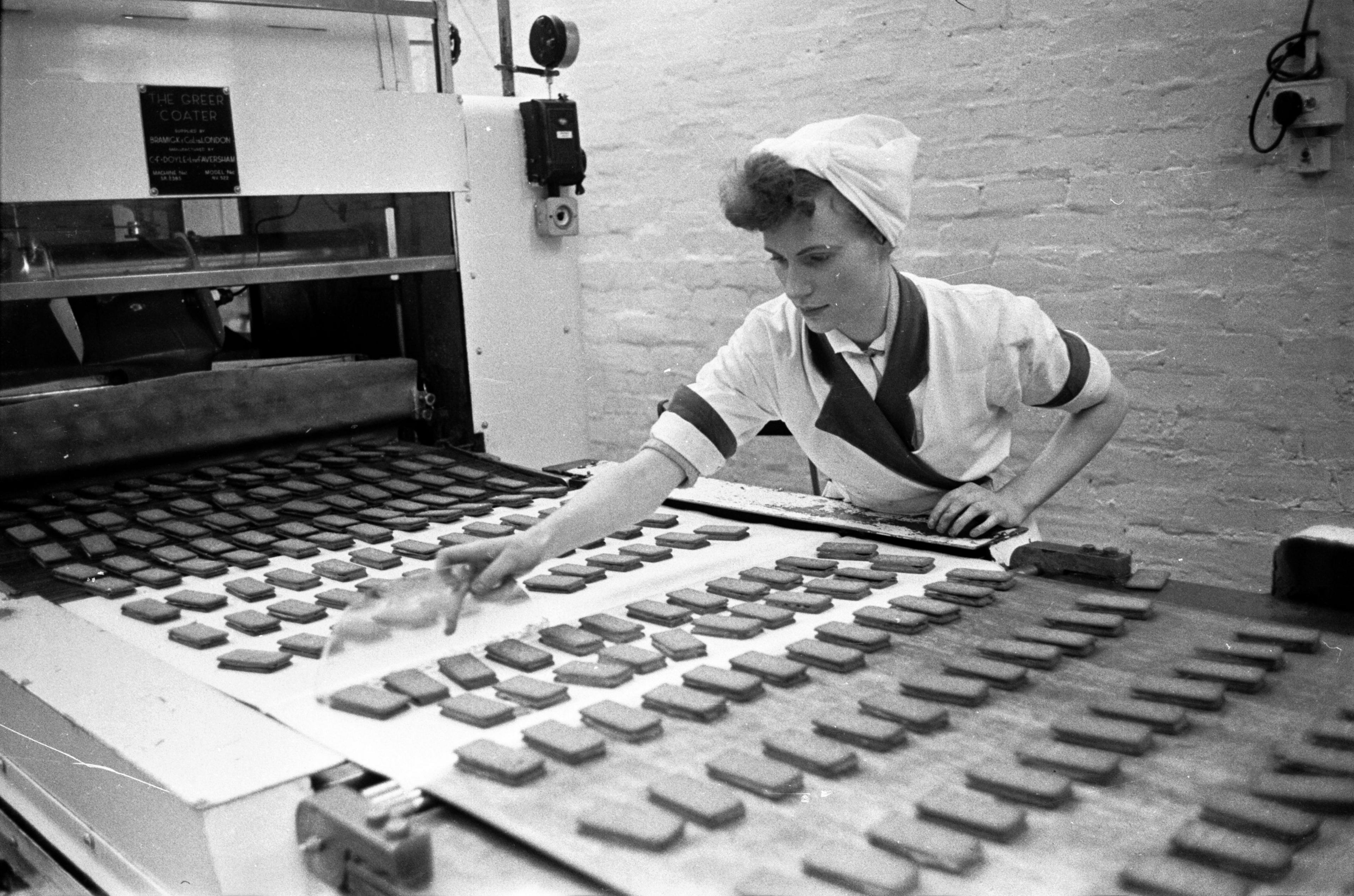
A worker checks the quality of biscuits on the conveyor belt
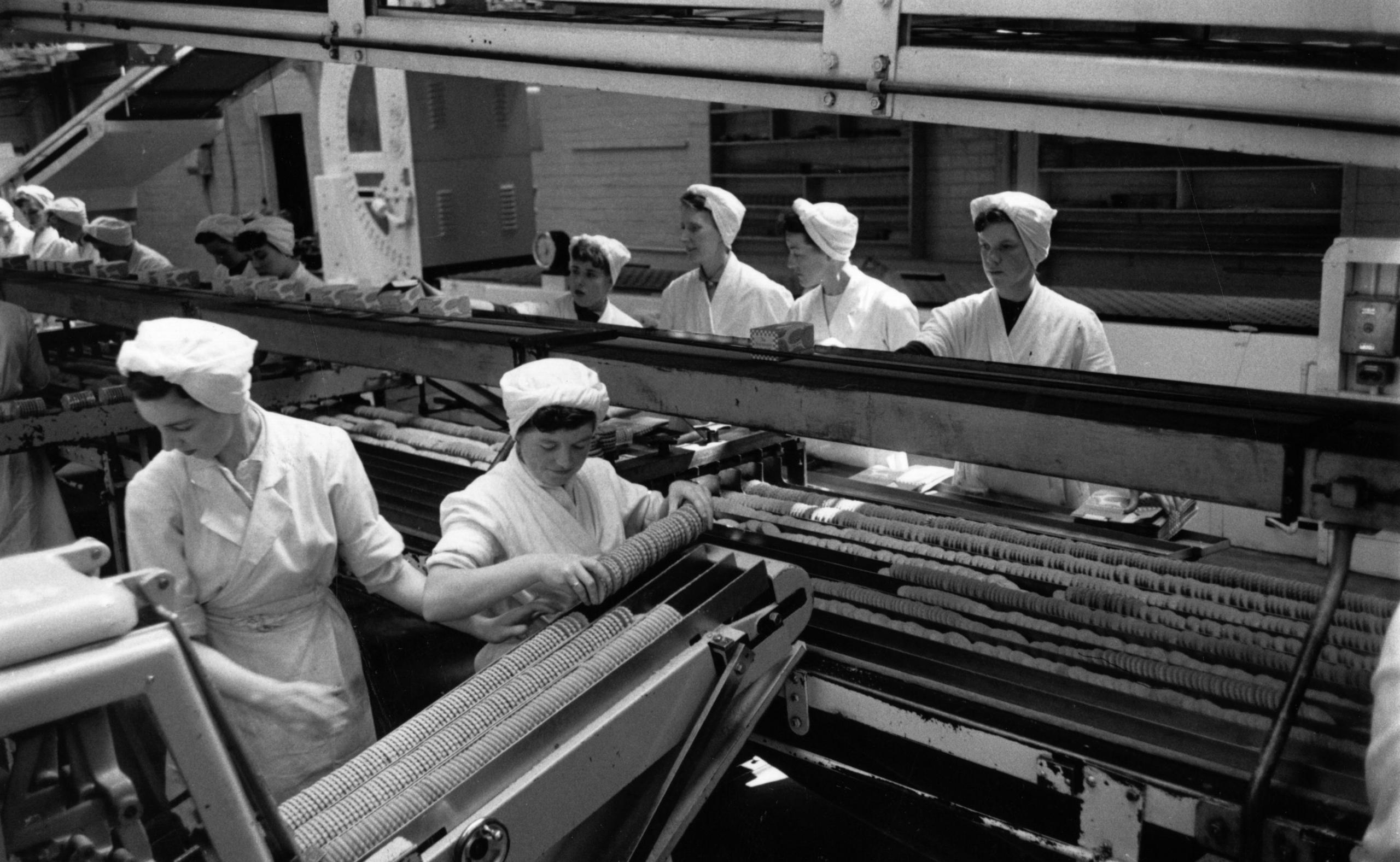
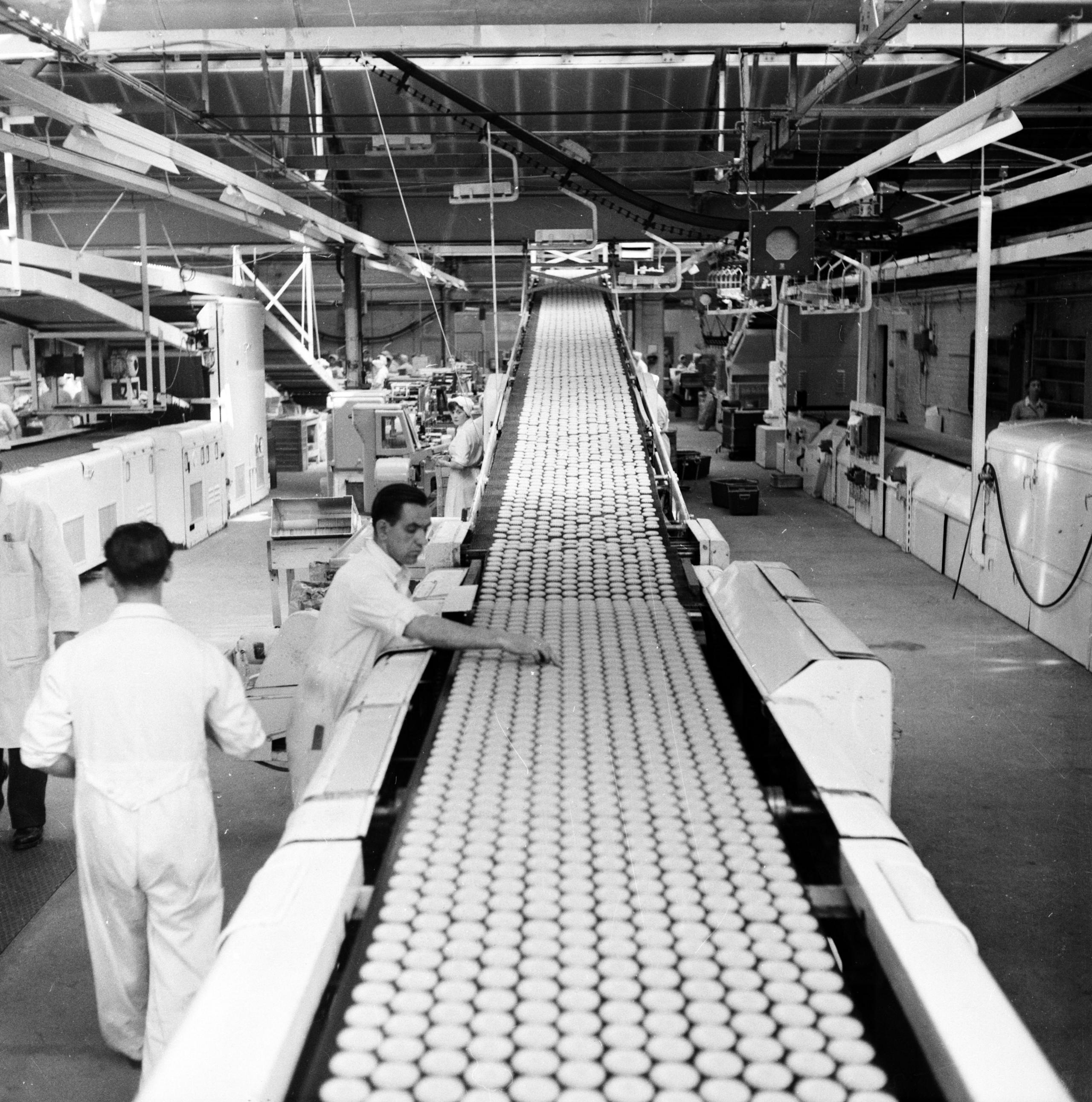
One of the most unusual factories in Glasgow was the John Letters and Co plant at Hillington Industrial Estate.
It claimed to produce 6,000 golf clubs a year.
But in 1955 it was reported that increased demand for woods, irons and putters led to a doubling of annual production.
Picture Post reported that the clubs were sold in Scotland "where the sport is very popular and exported around the world".
The John Letters brand was bought by Direct Golf UK in 2005.
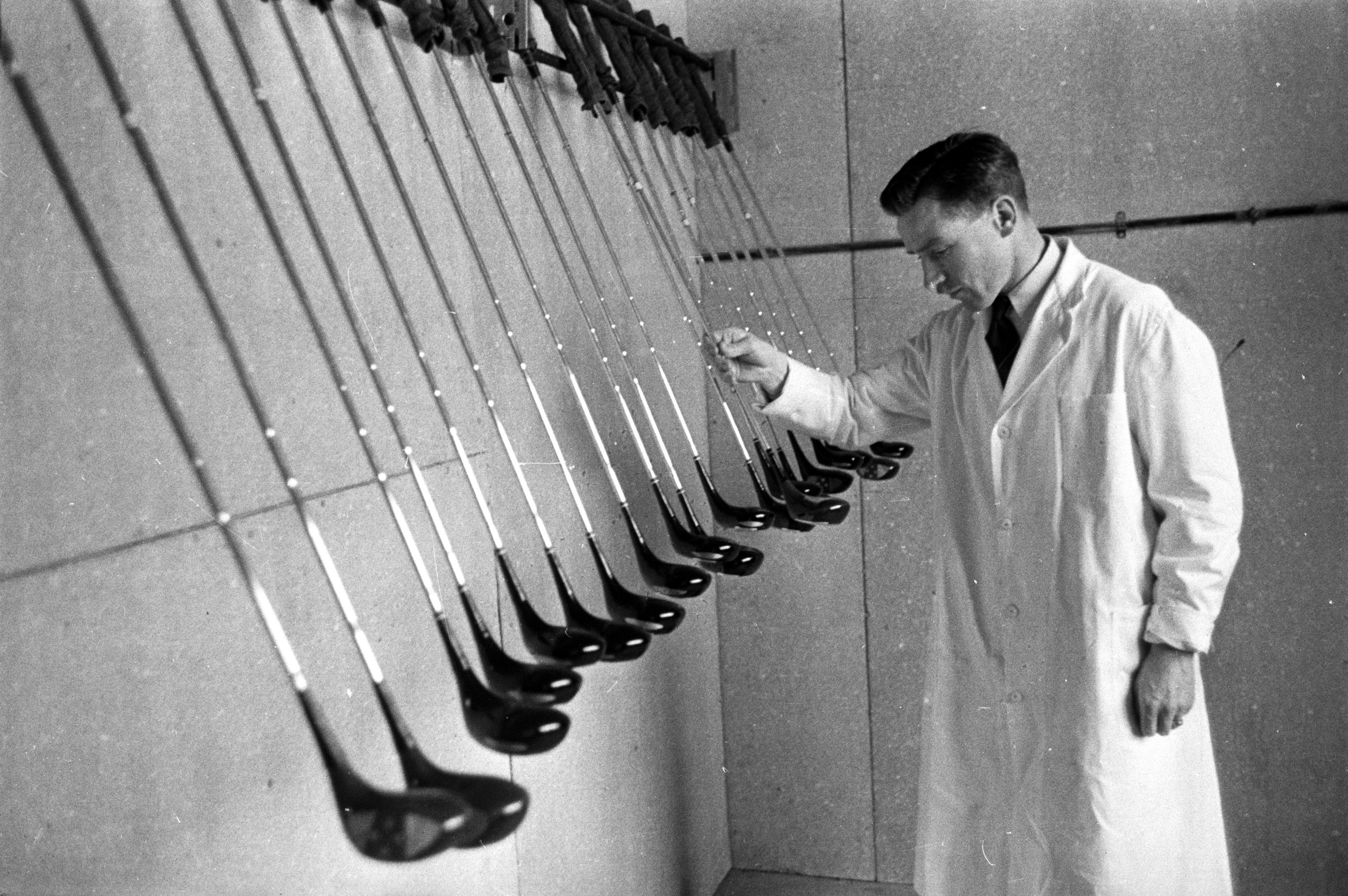
Golf clubs were inspected at the John Letters and Co factory
Get in touch
What stories you would like BBC News to cover from Glasgow and the west of Scotland?